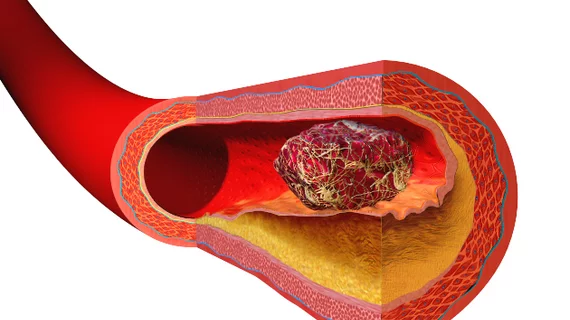New discovery might explain why blood clots are so common among COVID-19 patients
Researchers in Sweden believe they may have identified a primary reason so many COVID-19 patients suffer from thrombosis, sharing their findings in Thrombosis and Haemostasis.
The team’s discovery revolves around mannose-binding lectin (MBL), a protein that is part of the body’s natural immune system. Exploring data from 65 patients who received care at a single facility in Sweden, the authors found elevated MBL levels were strongly associated with developing thrombosis.
MBL, the researchers explained, may be contributing to blood coagulation in these patients—and that coagulation then leads to thrombosis.
“Our results are especially interesting since we think MBL activates blood coagulation in a way that blood-thinning drugs can't prevent,” lead author Oskar Eriksson, a researcher in the department of immunology, genetics and pathology at Uppsala University in Sweden, said in a statement. “This might explain why so many patients suffer from clots in spite of treatment.”
These findings, the authors added, could help lead clinicians to start regularly testing the MBL activity of COVID-19 patients. Medication that can ease MBL elevation may also be a target of research teams in the years ahead.
Click here for the Thrombosis and Haemostasis study.

